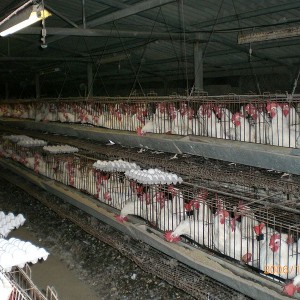Excerpted from the Seattle Weekly:

Image: Wikimedia Commons
Both Marilyn Watkins, policy director for the Economic Opportunity Institute, and Eric de Place, a senior researcher at the Sightline Institute, recommend closing as many of the 567 tax loopholes currently afforded by the state to various corporations and industries.
Watkins is particularly opposed to tax breaks for the farm industry. While farmers are hardly the stereotypical Wall Street fat cats, Watkins says the largest beneficiary is industrial agribusiness, not mom-and-pop homesteads.
“We almost completely exempt farms from taxation in our state,” Watkins says. “That made sense back in ’30s when it was family farmers slammed by the depression and in financial crisis, but there’s not a good reason in this day and age to exempt big agribusiness from taxation.”
According to de Place, several farm tax loopholes border on absurd. They include caveats for the propane used to heat vast chicken coops, and fine print that favors bull semen traders, he says.
“You name it there’s an exemption,” de Place says. “They live in this weird tax-free environment, Maybe that makes sense from public policy standpoint, I don’t know, but do we really need tax-free bull semen? Is that hugely important?”
More To Read
May 2, 2024
Baby Bonds: A Step Toward Racial and Economic Equity
The Washington Future Fund would bring this innovative, anti-racist policy to the Evergreen State
May 1, 2024
Laws Targeting LGBTQ Youth Aren’t Just Bad for Kids – They’re Bad For The Economy
The harm done by anti-LGBTQ laws expands so much further than queer children and teens
April 26, 2024
What is WA Cares and Why Does It Matter for Washingtonians?
We need to defend this important policy from billionaires looking to save a buck
